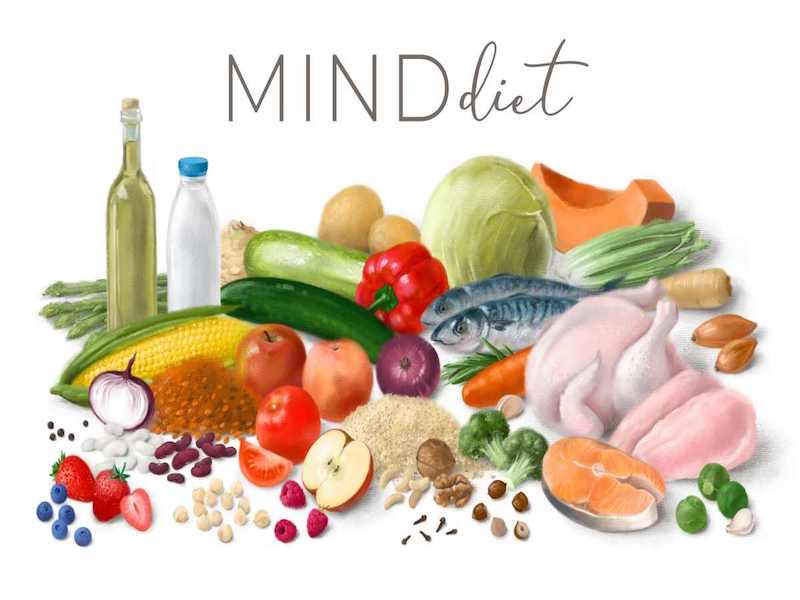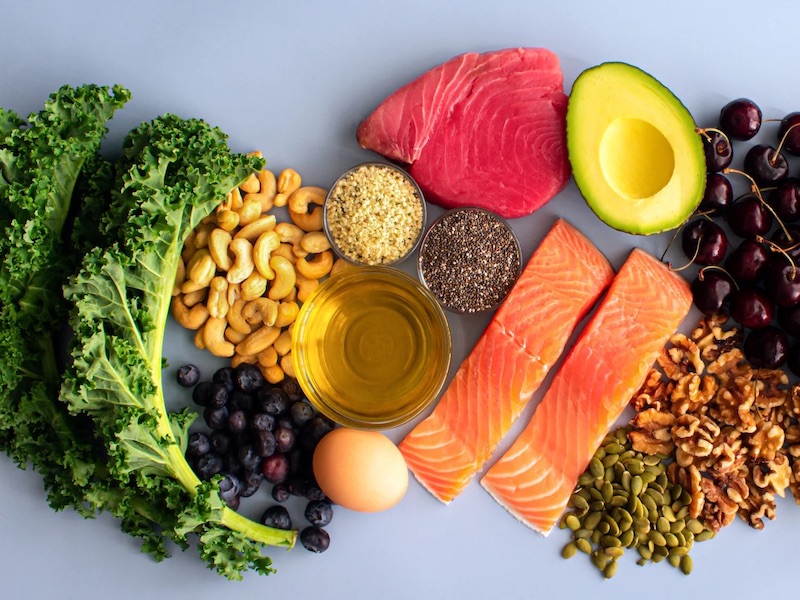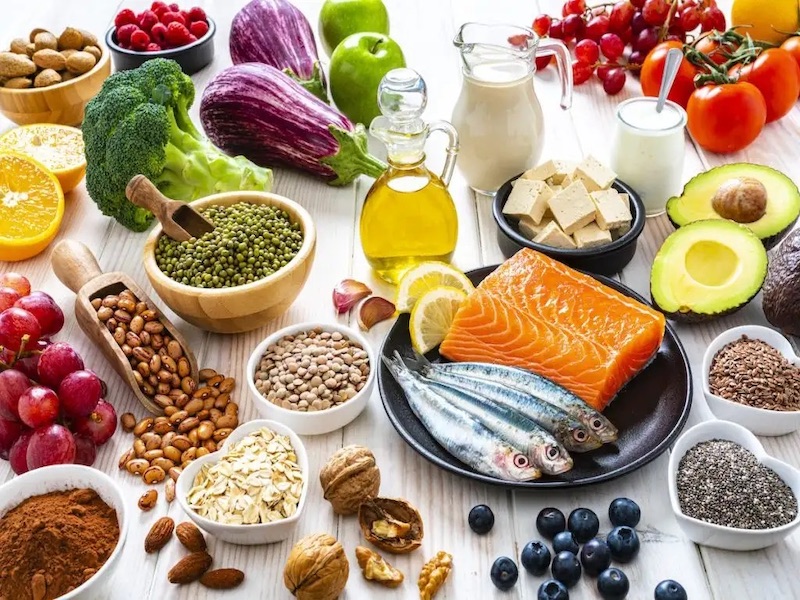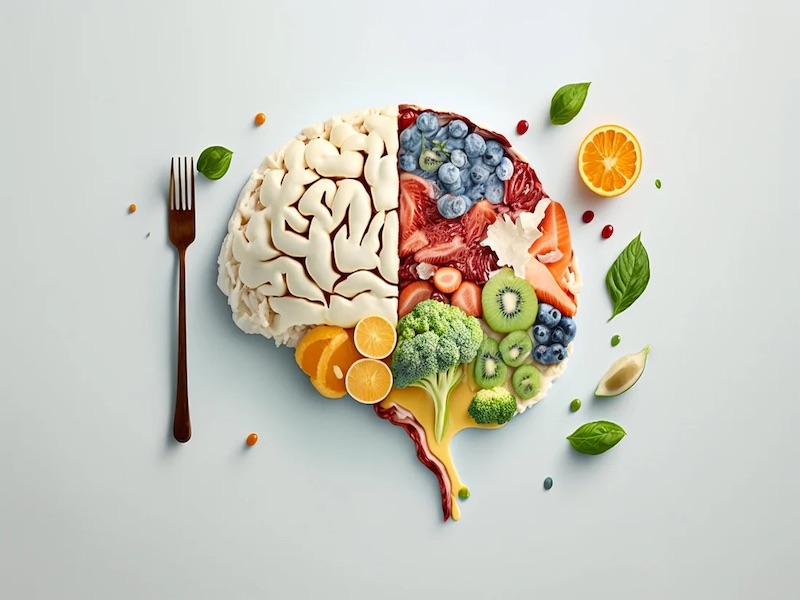
What is the MIND diet? Benefits, foods to eat or not to eat, menu suggestions
In modern life, maintaining a healthy diet not only helps improve overall health but also plays an important role in preventing brain-related diseases. One of the prominent diets today that many nutritionists recommend is the MIND diet. Developed from a combination of the Mediterranean and DASH diets, the MIND diet focuses on protecting the brain and reducing the risk of Alzheimer’s disease and other neurodegenerative diseases.
Let’s learn about the benefits, foods to eat, and limits of the MIND diet as well as how to apply it to your daily diet to achieve optimal health.
What is the MIND diet?
The MIND diet is a perfect combination of the DASH and Mediterranean diets. According to research from nutritionists at the Watertown Regional Medical Center in Wisconsin (USA), this method helps us reduce the risk of Alzheimer’s disease and maintain brain health.

Both the DASH and Mediterranean diets encourage people to consume foods from vegetables, providing good nutrients for the brain and supporting memory enhancement. From this combination, experts have developed the MIND diet.
The MIND diet encourages the addition of foods of plant origin, especially green vegetables and berries. At the same time, you need to limit the consumption of animal products and foods high in saturated fat.
See more:
- OPTAVIA diet: Principles, benefits, 7-day menu according to OPTA diet
- Insulin resistance diet: Benefits and how to build an extremely effective diet
- The gluten-free diet: Benefits, foods and menu planning
Benefits of the MIND Diet
MIND mode brings great benefits to the body:
- Reduced risk of Alzheimer’s disease: The biggest benefit is a reduced risk of Alzheimer’s and Parkinson’s disease. A 2018 study in the Journal of Nutrition, Health and Aging found that the MIND diet can significantly reduce the risk of dementia in older adults. The MIND diet encourages the consumption of foods such as fish to provide vitamin B12 and omega-3 essential for the brain. In turn, people can reduce the risk of Alzheimer’s disease.
- Provides a rich source of vitamins: The MIND diet contributes to supplementing vitamins and antioxidants from vegetables and fruits such as folic acid, vitamin E, vitamin C, beta-carotene, flavonoids, … These are all important nutrients for brain development.
- Reduce sugar and fat: Consuming too many refined carbohydrates like sugar, syrup, flour, etc. increases the risk of diabetes.
What should and shouldn’t you eat on the MIND diet?
What to eat on the MIND diet?
- Chicken: At least twice a week.
- Fish (tuna, salmon): At least one serving per week.
- Whole grains (brown rice, whole wheat pasta, bread, quinoa, oatmeal): At least three servings per day.

- Nuts (cashews, almonds, pistachios): At least five servings per week.
- Beans (black beans, kidney beans, pinto beans): At least three servings per week.
- Green leafy vegetables (bok choy, spinach, kale, lettuce): At least six servings per week.
- Berries (strawberries, raspberries, blueberries): At least two servings per week.
- Use mainly olive oil in cooking.
- Alcohol: Consume no more than one drink per day.
What foods should be limited on the MIND diet?
- Sweets (cakes, candies, etc.): No more than five servings per week.
- Fast food or fried foods: No more than one serving per week.
- Red meats: No more than four servings per week.
- Cheese: No more than one serving per week.
- Butter and margarine: No more than one tablespoon per day.
See more:
- What is a high-protein diet? Benefits and suggestions for 15+ protein-rich foods
- Quick weight loss diet plan – Tips and notes for beginners
- Fodmap diet: Solution for irritable bowel syndrome (IBS)
Suggested menu for a week according to the MIND diet
Day 1:
- Breakfast: Banana-strawberry smoothie.
- Lunch: Kale salad.
- Dinner: Bell peppers cooked with ground turkey and quinoa.
Day 2:
- Breakfast: Vegetable frittata and a slice of toast.
- Lunch: Tuna salad sandwich on whole wheat bread.
- Dinner: Pecan-breaded chicken with roasted broccoli.
Day 3:
- Breakfast: Blueberry walnut pancakes.
- Lunch: Grilled chicken sandwich on whole wheat bread, celery and hummus.
- Dinner: Roast turkey with cabbage salad and whole wheat dinner rolls.

Day 4:
- Breakfast: Greek yogurt with raspberries and 15 almonds.
- Lunch: Kale and spinach salad with carrots, bell peppers, mushrooms, tomatoes, chickpeas, salad dressing, olive oil and brown rice.
- Dinner: Whole wheat pasta with chicken and marinara sauce, roasted broccoli, and a side salad.
Day 5:
- Breakfast: Oatmeal with blueberries and chopped almonds.
- Lunch: Grilled chicken, ½ pita, kale salad with chickpeas, feta cheese, tomatoes, cucumbers and olive oil.
- Dinner: Grilled salmon with broccoli and Brussels sprouts (using olive oil), quinoa, and a glass of wine.
Day 6:
- Breakfast: Whole wheat bagel with an egg and blueberries.
- Lunch: Turkey sandwich on whole wheat bread, tomato slices, lettuce, hummus, and baby carrots on the side.
- Dinner: Quinoa stir-fry with sauteed greens, beans, and olive oil.
Day 7:
- Breakfast: Whole wheat toast with scrambled eggs and avocado slices.
- Lunch: Spinach salad with strawberries, chickpeas, chopped almonds, olive oil dressing, and a small whole grain roll.
- Dinner: Grilled salmon with sauteed spinach and 1/3 cup brown rice.
Conclusion
The MIND diet not only helps reduce the risk of neurodegenerative diseases but also supports overall health by providing complete and balanced nutrition. Applying this diet in your daily life can help you maintain good health and improve your quality of life. Start applying the MIND diet to enjoy the benefits it brings to your body and mind. Follow Evaworlds to update new knowledge.














